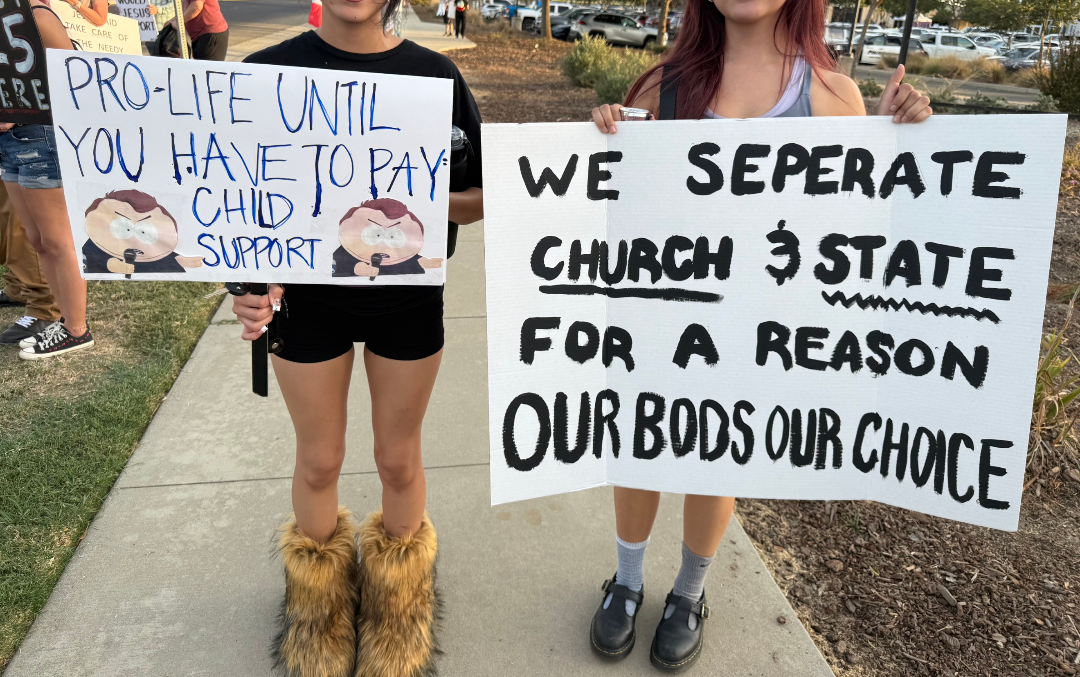In a modern society, there are several difficulties. Along with the murders and diseases, obesity ranks as one of the chief problems in today’s communities. Childhood obesity is very serious and it seems as if nobody wants to take responsibility for it. There has been plenty of controversy of who is to blame for the epidemic. Whether it is the government, fast-food restaurants, parents or even the children, none of these groups seem willing to account for the predicament. In a 2002 Sacramento Bee column, “The Battle against Fast Food Begins in the Home,” Daniel Weintraub demands parents should be held accountable for their children’s excess weight. Weintraub is correct. Parents should take responsibility for this growing epidemic.
A parent’s job is to look after their kid and keep them from harm’s way. How is it that parents can be liable for everything else regarding their children, yet not this? “We have laws against leaving a loaded weapon with our children, why should food be any different?” Weintraub asks. This lack of protective laws is changing, as some legislators are crafting laws to guard the health of children. SB 622, authored this February and currently moving through the Calif. legislature, would institute a state soda tax. The proceeds of this tax would support obesity prevention.
There are many excuses for who is to blame for children’s obesity, and blame often is given to restaurants such as McDonalds. A general assumption concerning McDonalds or any fast food is that it is unhealthy to eat. Parents are not ignorant to that fact. Fast food meals consist of extra sugar, grease and calories. Why do parents continue to feed their children fast food if it is not good for them? Parents, knowingly or unknowingly, are basically giving their children that loaded gun. Just as much as the gun is dangerous, so is fast-food. They both can potentially be deadly.
People in general do not see obesity in children as the urgent, life-threatening problem that it is. Parents might pay more attention to having a “fat” kid than raising a child struggling with obesity. Don’t get me wrong, “obese” and “fat” may seem like similar words, but they have their differences. Being classified as “fat” can be based on your appearance, however, getting identified as “obese” means that medically speaking it is critical for your well-being to change your diet. That doesn’t mean eat less, but change what you eat and how much you move throughout the day.
Parents might just assume that they don’t want their children to eat certain things because they’re afraid they could become fat. Some parents might even tell their child, “No candy until after dinner!” However, limiting some foods never really works. My mother is like that. My younger brother is a big boy. He is always eating too. He doesn’t just snack though, he eats healthy meals as well. My mom will always scold him, “ No Nathan, you already ate!,” then later she will give in. She is not worried about whether or not the type of food is healthy for his body or if he exercises enough, all she cares about is making sure her son doesn’t stay big. It should not be this way. Parents shouldn’t just be worried about the kid gaining weight or their appearance, but worry about what a poor diet can do to a child’s body. Obesity is a big deal for any age, but when it attacks a child it can cause many problems.
Childhood obesity is not just another issue, it is a life threatening issue. It is a caloric imbalance. The children’s unhealthy eating habits can lead to many consequences. One of the main effects of childhood obesity is cardiovascular disease. More than 70 percent of children suffering with obesity end up with cardiovascular disease. Other outcomes are high cholesterol and high blood pressure. Children as early as 5 years old suffering with obesity can get pre-diabetes. Pre-diabetes can result in bone and joint problems.
Not only is this problem dangerous, but without the support from parents it can increase. In the past 30 years this disease has nearly tripled. In 2008, more than one third of children were overweight and obese. The rate of childhood obesity jumped from 7 percent to 20 percent.
Watching eating habits of children is easier said than done. For instance, Weintraub states, “It is not easy, especially when both parents are working or there is only one parent in the home. Fast food is fast. It can also seem cheap; at least before you start adding the fries and sodas and desserts.” In other words, Weintraub simply understands that taking on the task of a parent alone can be a struggle, without watching your child’s weight. However sooner than later, it has to be realized that it is the parents’ responsibility.
This does not go to show that parents are bad people who deliberately choose for their children to be fat. After realizing the consequences of childhood obesity, some people might claim that parents who don’t control what their children eat are participating in child abuse. However that is not the case. Some parents don’t have options for healthy choices.There are many families out there without the proper resources to exercise with their families or provide a better diet.
In the article, “The Health Toll of Immigration,” Sabrina Tavernise identifies immigrants as the group who struggles most with this problem.
Immigrants came to this country in hope to find better opportunities. They eventually had children. When they made enough money they would go out to eat. As immigrants in America with more food options than ever before, eating out with their families proved their economic status. With the low prices of fast food, immigrants were able to enjoy the luxury of eating out, but this luxury eventually turned into a necessity. The American-born children of immigrants were forced to eat out than a dinner at home because of the lack of money. They would not go out to exercise because of the fear of getting caught by immigration officers. As a result the American-born children of immigrants suffered more than the parents did. So the question then becomes how can we help the parents stop childhood obesity?
With the appropriate actions there are ways to limit and even prevent childhood obesity. Parents play a huge influence in their child’s life. Parents can encourage healthy lifestyle habits. They can also use schools for support to raise awareness about the growing epidemic and its factors. Because obesity is partly based on behaviors, exercising and eating healthier meals as a family would help limit the chances of becoming overweight. they can exercise at home and even find cheaper recipes that are a healthy choice. Parents can especially benefit from any of these vigorous choices. It can help lower their children’s risk of developing obesity along with any other related diseases.
The essence of Weintraub’s argument is that presenting children with the appropriate eating and behavioral habits relies solely on the parents. Parents are given the role to protect their offspring. Parents have some control over their children’s decisions in life regarding everything else. It is time that the parents are given not just responsibility for childhood obesity, but the information and tools they need to help prevent it. Childhood obesity is not based on the government, or any fast food restaurant. Childhood obesity stops with the group of people who are trusted to raise them, the parents – and they need all the help they can get.


